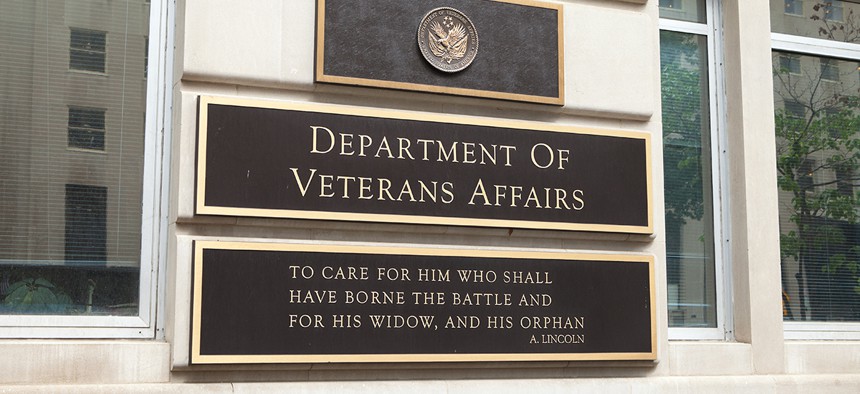VA Changes Course on Scheduling System Again

Mark Van Scyoc/Shutterstock.com
Officials say they can actually do things cheaper and quicker more using revamped versions of VA’s own in-house systems.
Last year, the Veterans Affairs Department awarded a massive $624 million contract to health care tech giant Epic Systems to replace a creaky 1980s-era scheduling system that officials blamed, in part, for the scandal involving manipulated appointment books and long wait times for veterans seeking care.
But now, VA has put that project on hold.
Officials testifying before a House Veterans Affairs subcommittee say they can actually do things cheaper and quicker using revamped versions of VA’s own in-house systems.
Lawmakers, though, are concerned about the department appearing to abandon its plan to implement commercial technology -- especially after VA spent more nearly $12 million simply on planning for the upgrade.
"This decision is a dramatic about-face,” said Rep. Mike Coffman, R-Colo., chairman of the subcommittee on oversight and investigations. “It means sticking with the government-developed technology indefinitely."
Using the two smaller-scale VA solutions will save millions of dollars, Dr. David Shulkin, VA’s undersecretary for health, told lawmakers.
One of them is an update to the agency’s current scheduling technology, which is built on top of VistA, VA’s homegrown electronic health record system. It’s called VistA Schedule Enhancement, or VSE, and is already being piloted at two VA hospitals in Asheville, North Carolina, and Salt Lake City, Utah. It could be rolled out nationally by this summer.
“Our goal is to give veterans tools today, because we still have an access crisis,” Shulkin said. “And we have to act with the urgency that I think all of you have asked us to act with."
The VSE system replaces an archaic black-and-white DOS-based system “that is almost impossible to figure out,” Shulkin said, with a more user-friendly system akin to a Microsoft Outlook calendar. That’ll make scheduling errors less frequent, he said.
The other small-scale solution, Veteran Appointment Request, is a self-scheduling application that allows veterans to make appointments using their smartphones.
Rolling out these new systems nationally will cost a total of $6.4 million. Installing the commercial technology -- just for a 10-month pilot project -- would cost $152 million, Shulkin said.
However, Shulkin emphasized VA is not abandoning its original plans entirely.
"We have not ruled out” the commercial approach, Shulkin said. “I want to be absolutely clear about that.”
If the two VA systems don’t turn out to be effective, the agency can always shift back to its original strategy for acquiring commercial tech, Shulkin said. Because the contract with Epic is of the indefinite-delivery, indefinite-quantity variety, VA can issue task orders against the contract at any time.
"We decided it's in the best interest of taxpayers before we proceed with a $152 million to see if VSE, which is in the field now being rolled out, meets the needs of veterans," he said. "If not, we can proceed” with the commercial option.
Still, the shift in plans didn’t sit well with either Democratic or Republican members of the committee.
Rep. Anne McLane Kuster, D-N.H., said VA’s search for commercial tech "seemed like a promising response to the clear inadequacies of the current system, and we were all encouraged by that.” Going back to VA’s in-house initiative “seems like deja vu all over again to me,” she said.





